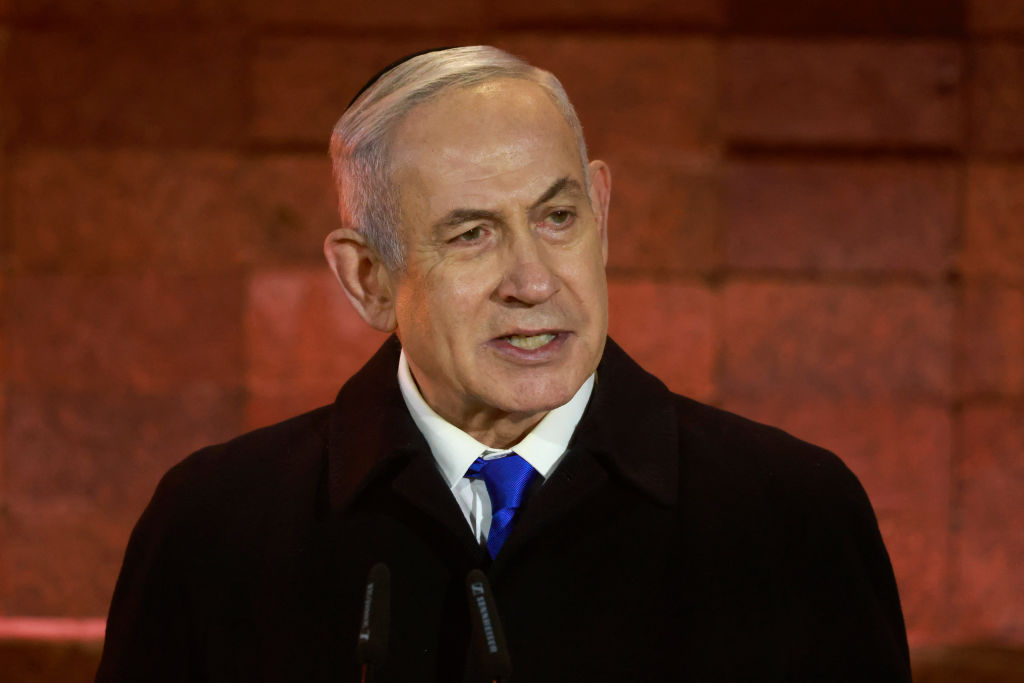On Monday, Karim Khan KC, the Prosecutor of the International Criminal Court (ICC), announced that he had applied for warrants for the arrest of three leaders of Hamas as well as the Israeli prime minister, Benjamin Netanyahu, and defence minister, Yoav Gallant.
If Khan thought that applying for arrest warrants for both Israeli and Hamas leaders would show how fair he is, he was gravely mistaken
If Khan thought that applying for arrest warrants for both Israeli and Hamas leaders would show how fair he is, he was gravely mistaken. The equivalence drawn between the terrorist masterminds of genocidal atrocities and a democratic government doing its best to prevent their threatened repetition, was truly repulsive.
President Biden said ‘The ICC prosecutor’s application for arrest warrants against Israeli leaders is outrageous. And let me be clear: whatever this prosecutor might imply, there is no equivalence – none – between Israel and Hamas.’
And 106 of the 120 members of the Israeli parliament signed a statement declaring: ‘The scandalous comparison by The Hague prosecutor between Israel’s leaders and the heads of terror organisations is an unerasable historic crime and a clear expression of anti-Semitism. We reject this with revulsion.’
But the Prosecutor’s public statement was not just insulting; its inaccuracy was embarrassing.
He claimed: ‘The siege [of Gaza] also included cutting off cross-border water pipelines from Israel to Gaza – Gazans’ principal source of clean water – for a prolonged period beginning 9 October 2023.’
The entirety of this statement is untrue. Prior to Hamas’s devastating attack on 7 October 2023, Israel was supplying less than 10 per cent of the clean water used in the Gaza Strip. In the course of the Hamas attack, two of the three pipelines were damaged, according to the IDF. Israel resumed the supply of clean water through the undamaged pipeline within six days of stopping it and through another pipeline when it was mended shortly afterwards.
Khan also accused Israel of ‘cutting off and hindering electricity supplies from at least 8 October 2023 until today’.
Nine out of the ten power lines from Israel to Gaza were damaged in the Hamas attack on 7 October. Electricity is used by Hamas to light and ventilate its terror tunnels and to launch its rockets aimed at Israeli civilians. Much of the electricity in Gaza is produced by individual generators and Israel has allowed in enough fuel to generate electricity for essential services, despite the risk that this fuel is taken by Hamas.
The Prosecutor referred to ‘the imposition of a total siege over Gaza that involved completely closing the three border crossing points, Rafah, Kerem Shalom and Erez, from 8 October 2023 for extended periods’.
Did he forget that the Rafah crossing, which he visited at the end of October 2023, is between the Gaza Strip and Egypt, not Israel – and that it was reopened for humanitarian supplies on 21 October? Did he not realise that the Kerem Shalom crossing was damaged in the Hamas onslaught on 7 October, but was reopened following repairs on 17 December? And is he not aware that the Erez crossing is not equipped for cargo transfers?
These egregious inaccuracies raise further questions as to the approach of the ‘Panel of Experts in International Law’ who agreed with the Prosecutor. Did they examine only what they were given by the Prosecutor or did they check thisinformation by carrying out their own research? False information about Israel is so pervasive that no one should take what they are told for granted without carrying out independent checks.
It appears from the Prosecutor’s statement that he relied on statements by UN organisations. He should not have done. Personnel of these UN organisations are often severely prejudiced against Israel and at least one of these organisations hasbeen heavily infiltrated by Hamas.
The advisory opinion of the International Court of Justice (ICJ) in 2004 on Israel’s security barrier in the West Bank provides an illuminating example. The ICJ relied on a statement by the UN that the occupancy of beds at the UN hospital in Qalqilya had fallen by 40 per cent in the course of concluding that the barrier had severely restricted access to Qalqilya. But as the Israeli Supreme Court observed in the subsequent Alfei Menashe case, two new hospitals had opened in Qalqilya, and this was likely to have affected demand for the UN hospital.
There is a regrettable tendency to suppose that where there are any perceived problems, the Zionists are to blame. In the present conflict, Israel has enabled considerably more than enough food to enter the Gaza Strip to feed its entire population. However, there have been some difficulties in its distribution inside the Gaza Strip, because Hamas and other armed gangs have been stealing it before it can be delivered to those Palestinians who most need it. Who should be blamed for that? It seems that Karim Khan KC blames the Zionist leaders.







Comments